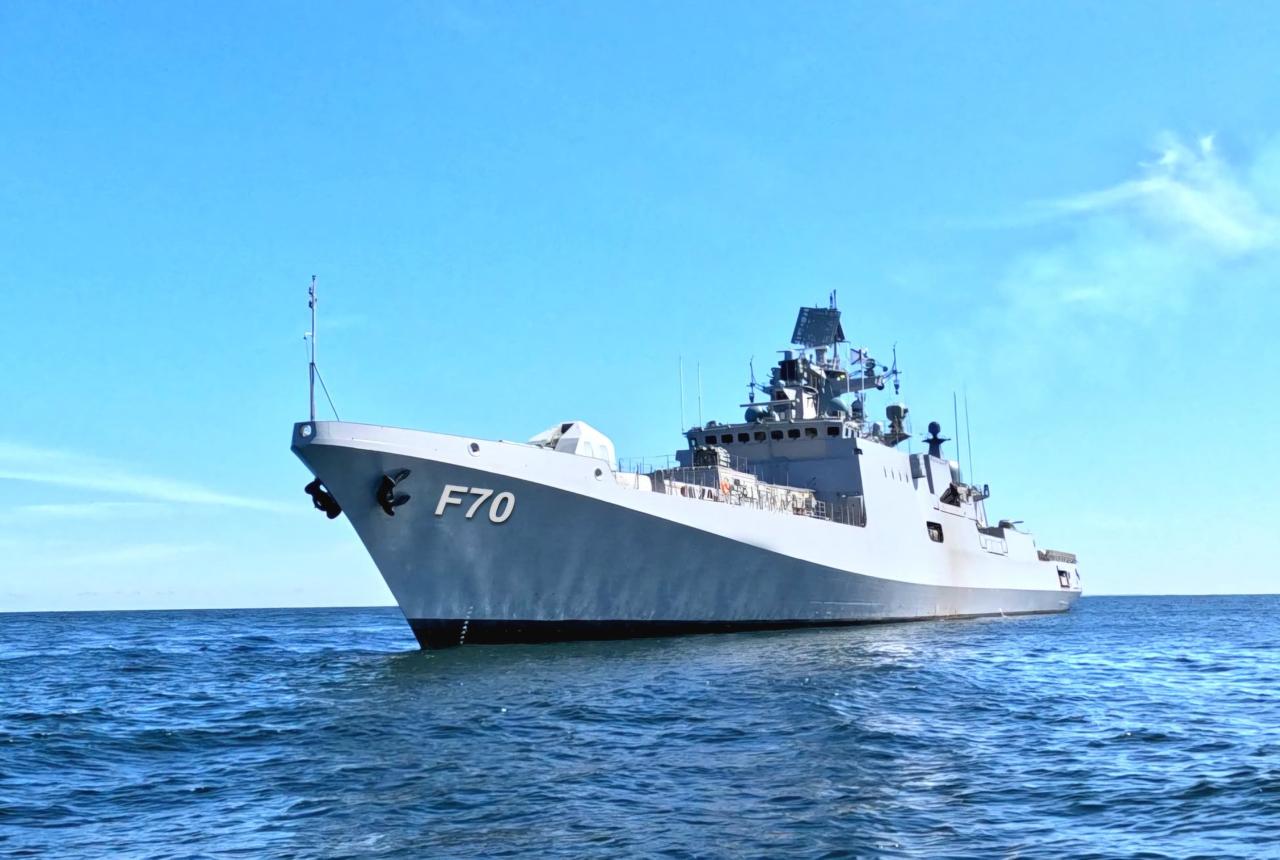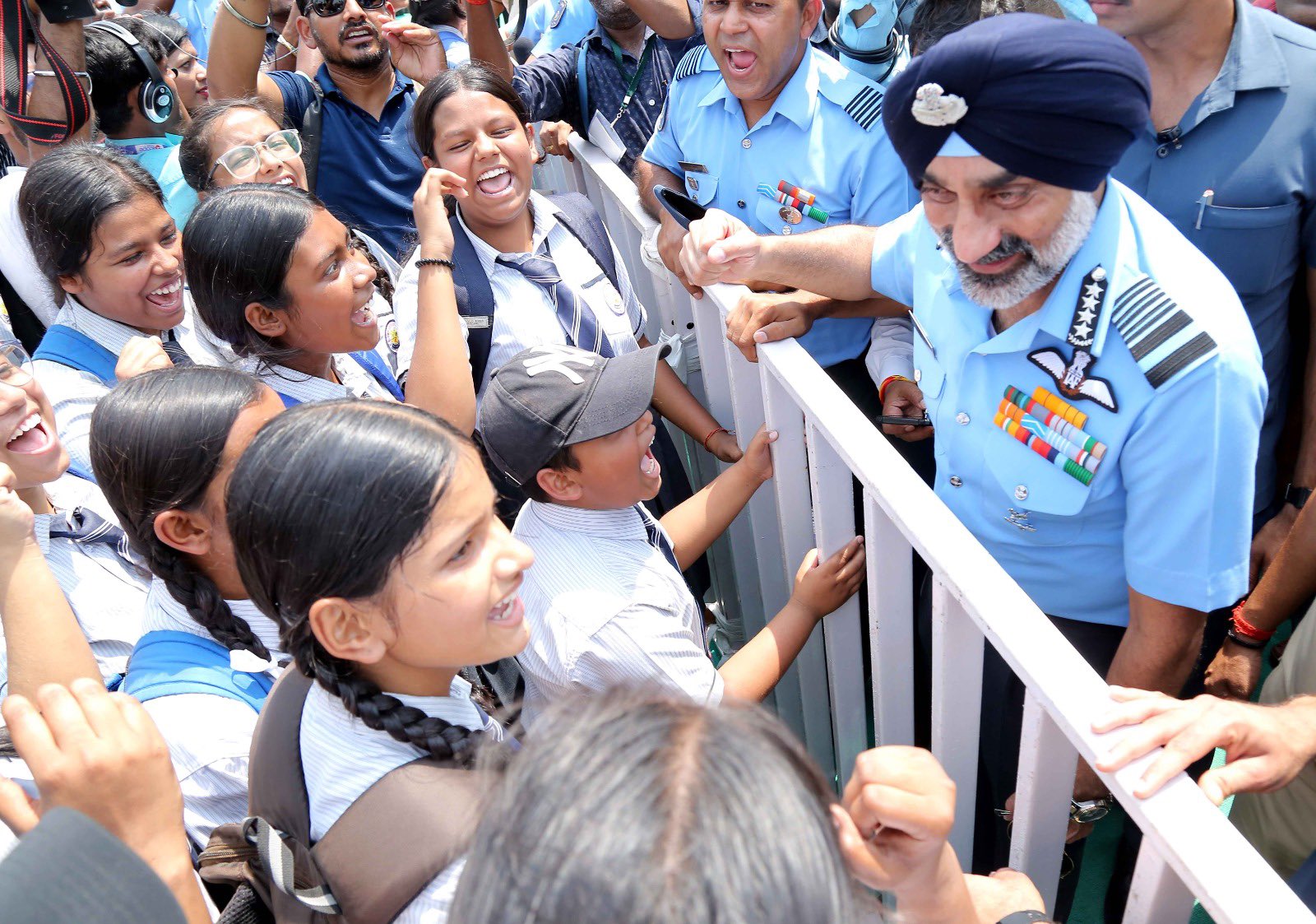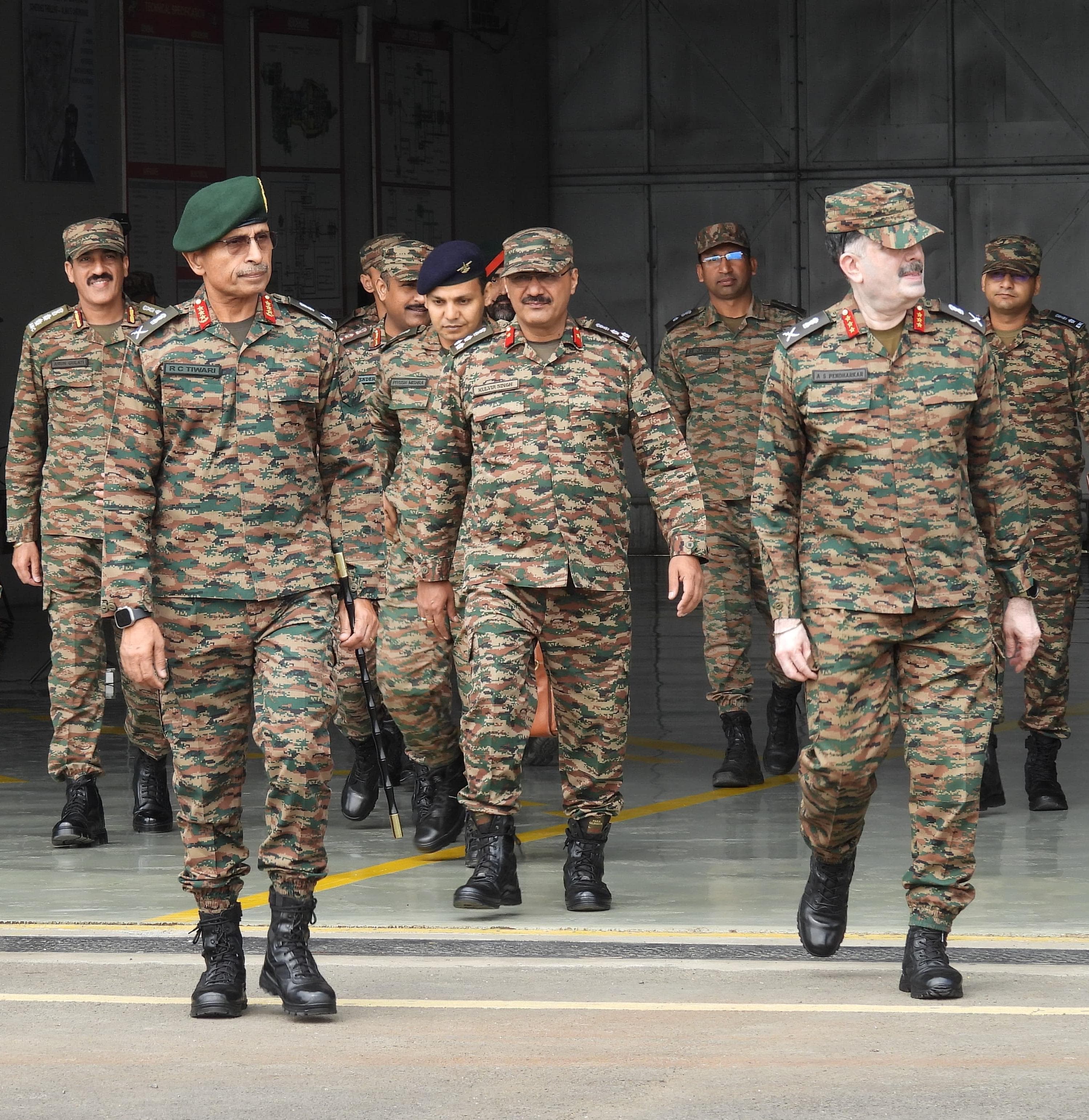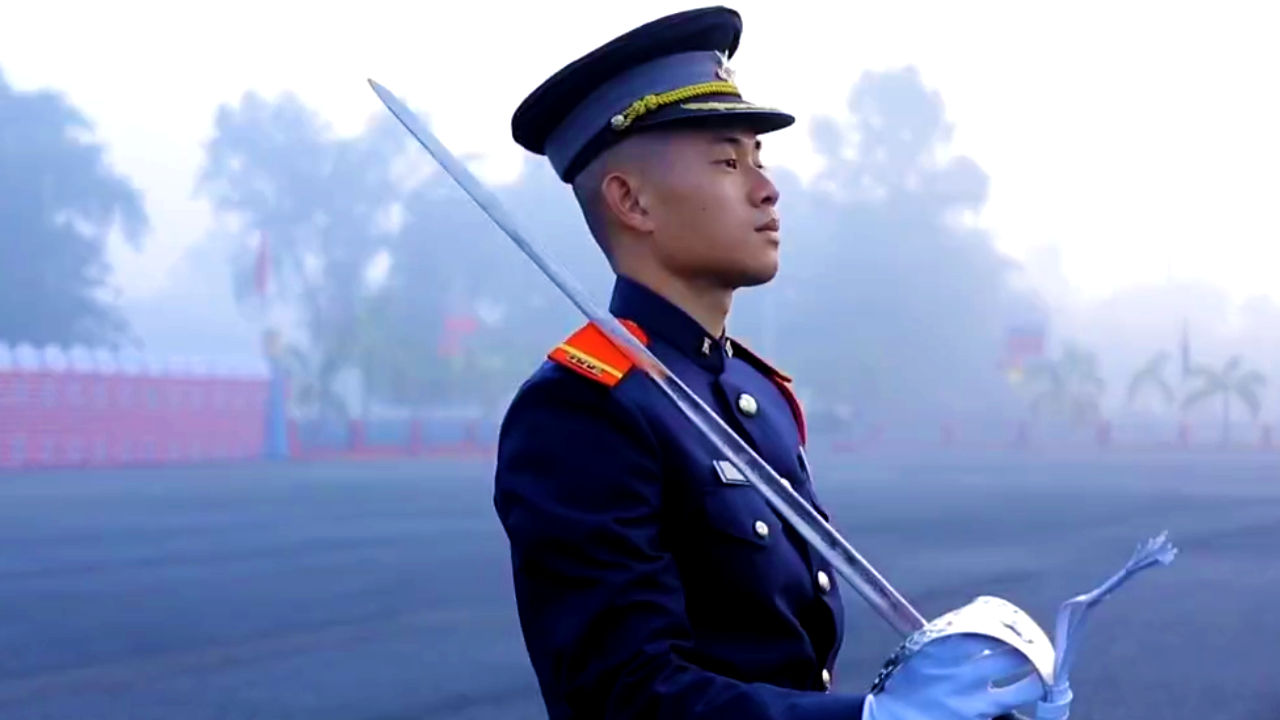INS Tushil, the most recent addition to the Indian Navy’s fleet, was officially commissioned at the Yantar Shipyard in Kaliningrad, Russia, on December 9, 2024. The event was attended by India’s Defense Minister Rajnath Singh, who hailed the commissioning as a significant milestone in strengthening India’s maritime capabilities and further cementing the enduring relationship between India and Russia. Singh emphasized that the event exemplifies the mutual trust and strategic partnership shared by the two nations.
During his speech, Singh highlighted the increasing “Made in India” content in the construction of the vessel, noting that it underscores the collaborative efforts of both Russian and Indian industries. He remarked, “This ship is a testament to India’s journey towards technological excellence through jointmanship and reflects Russia’s commitment to India’s vision of ‘Aatmanirbhar Bharat.’”
Rajnath Singh had arrived in Russia the day prior to the commissioning ceremony to participate in the 21st India-Russia Inter-Governmental Commission on Military & Military-Technical Cooperation. Prior to his visit, he took to social media to express his anticipation for attending both the meeting and the commissioning ceremony.
The name Tushil, meaning “protector shield” in Sanskrit, is one of four advanced follow-on frigates India contracted from Russia in 2018. Two of these frigates, including INS Tushil and INS Tamala, are being built in Russia, while the remaining pair is under construction in India with technology transfer agreements in place. This latest addition is an advanced variant of the existing Talwar-class frigates, aimed at enhancing India’s naval capabilities amid increasing maritime threats from neighboring countries, including China and Pakistan.
The commissioning of INS Tushil has attracted considerable attention, particularly because its delivery had faced significant delays—approximately two years behind schedule—originally anticipated for late 2022. These delays were primarily attributed to supply chain disruptions caused by the global pandemic and the ongoing conflict arising from Russia’s invasion of Ukraine. Alexey Rakhmanov, the Director-General of the United Shipbuilding Corporation of Russia, noted that logistical challenges in obtaining equipment, alongside payment issues stemming from Western sanctions, had contributed to the holdups.
In a noteworthy detail, Tushil’s gas turbine engines were supplied by Zorya-Mashproekt from Ukraine. Due to complications stemming from the Russia-Ukraine conflict, India has had to directly procure these engines before sending them back to Russia for installation on the ships. Meanwhile, vessels of the same class being constructed for the Russian Navy have encountered significant setbacks since Ukraine halted engine supplies following the tensions that escalated in 2014.
With INS Tushil’s commissioning, India is taking concrete steps to enhance its maritime capabilities in light of adversarial pressures. The next ship under this contract is expected to be delivered by 2025. Alongside this development, Rajnath Singh’s agenda includes addressing delays in the supply of other significant military equipment during the Inter-Governmental Commission meetings.
The defense minister is anticipated to raise concerns about the notable delays in deliveries of the S-400 air defense systems, and related spare parts for various critical platforms including the Sukhoi-30MKI fighter jets and T-90S tanks. Earlier statements from India’s Chief of Air Staff confirmed that all S-400 systems ordered from Russia are now projected for delivery by 2025. Initial expectations had positioned the completion of these deliveries for either 2023 or 2024, but the conflict in Ukraine has necessitated adjustments in Russian military operational priorities, leading to delays.
The payment process has also proven contentious, complicating timely deliveries of defense systems for India. Instances of deferred payments, estimated at approximately $3 billion, have occurred as India navigates sanctions risks associated with the U.S. laws under the Countering America’s Adversaries Through Sanctions Act (CAATSA). The shifting global financial landscape has particularly challenged transactions, as Russia finds itself cut off from the international SWIFT banking system.
Additionally, discussions are underway regarding potential joint production of aero engines for the Sukhoi-30MKI aircraft in the backdrop of previous reports of delays in part supplies from Russia, exacerbating operational readiness for the Indian Air Force.
India’s strategic pivot, while maintaining its longstanding defense ties with Russia, reflects its urgency in addressing security concerns along its borders amidst the prolonged Ukraine conflict. As tensions persist, New Delhi is increasingly vocal about its need for timely delivery of critical military hardware from Moscow, echoing a sense of impatience in the face of ongoing supply disruptions.















